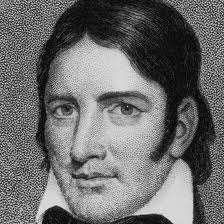My favorite place is where I'm at right now. Michael and I have been together for almost two years, we do everything together with very little DRAMA. I'm in the best relationship I have ever been in my life with Michael.
We both like to travel and we are spending a lot of time right now looking for fun things to do on our next road trip.
We will be gone for 5 to 8 weeks with only two destinations, Niagara Falls and Boston.
We plan to wander, we don't to have to be anywhere at any given time.
We will be going through about 20 states. If we are having fun we will stay where ever we are as long as we want, if we get bored we will just head down the road.
We are both making lists of things we may or may not want to see or do in each State. Neither one of us are interested in going to a lot of the tourist traps in big cities.
Some of the things on our list so far.
Explore the nude beaches and small towns along the shoreline of three of the five great lakes.
Michael wants to shop at about a thousand antique malls.
We have a list of 15 gay campgrounds that we will be near to on the trip. Two of them have jumped to the top of the list.
Depending on where we are Labor Day weekend we may want to party in Gibson Pennsylvania at a gay campground with about 400 of our closest friends.
We will spend some time at the gay campground in Morgantown Indiana.
© 7 July 2013






















